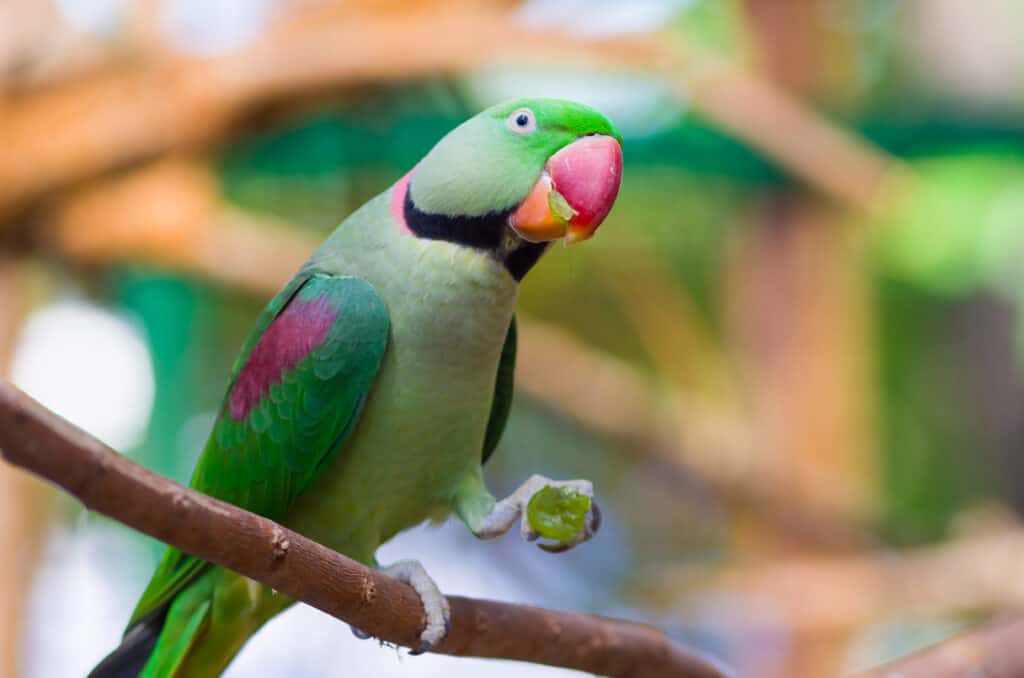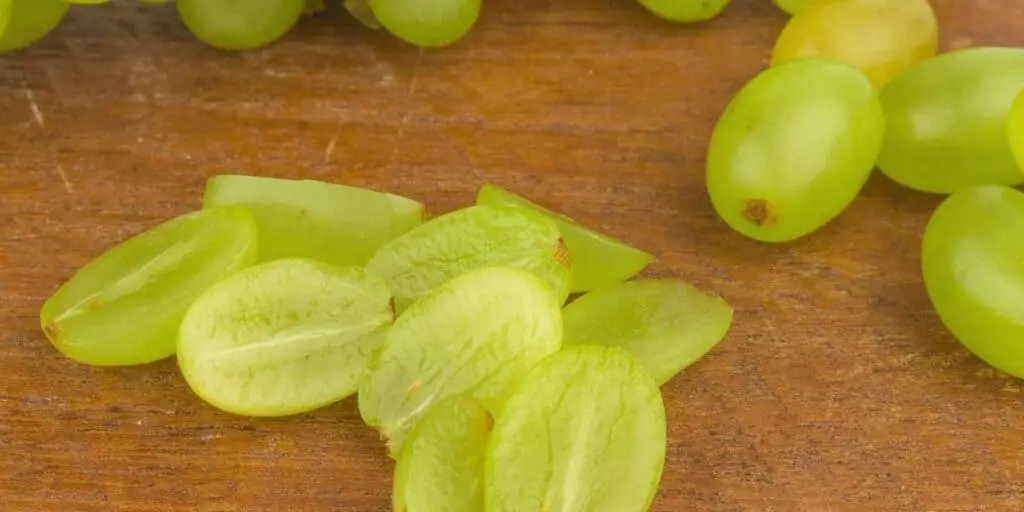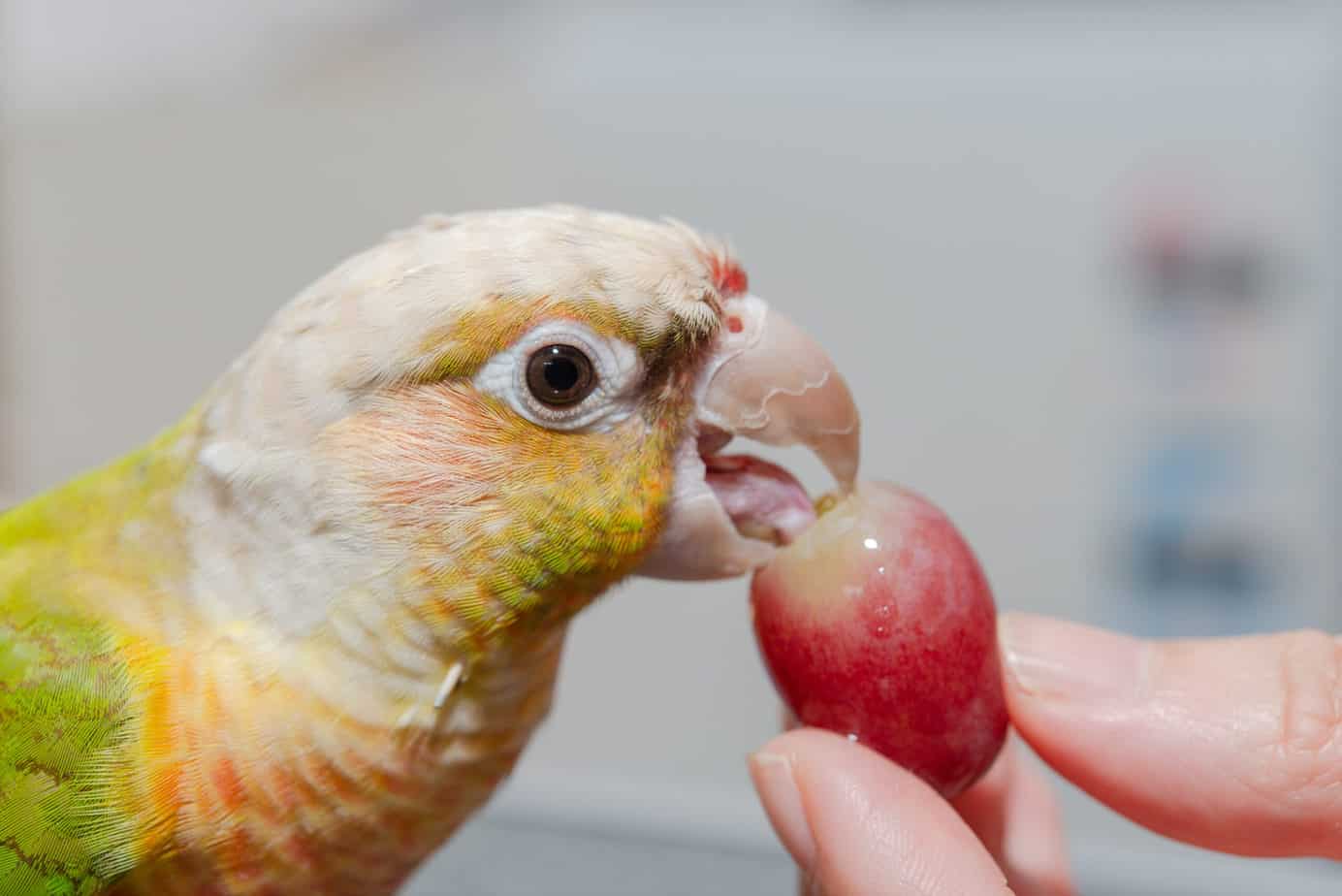Finding new treats and taste experiences for your pet parrot is one of the really enjoyable aspects of caring for these remarkable birds. There is nothing more satisfying than seeing them enjoy something that they like, but you can have too much of a good thing!
You may be wondering if your parrot will enjoy grapes as much as you do.
Parrots can safely enjoy grapes, which have no toxicity or harm to parrot species. Grapes can also be safely eaten in small quantities as raisins. The only problem you will encounter is that these refreshing fruits are incredibly moreish to your pet parrot and if given the opportunity they will be gobbled to excess.
Table of Contents
Are grape skins ok for my parrot?
You do not need to peel grapes to serve them to your parrot. But you should make an effort to clean them thoroughly. Grapes can be contaminated with pesticides which your bird may be sensitive to.
Though peeling is unnecessary, ensure you give them a good wash, using a vinegar rinse or fruit and veg cleaner and rinsing thoroughly. Grapefruit Seed Extract is particularly beneficial for cleaning fruit.

Can my parrot eat grape seeds?
Antioxidant-rich grape seeds are perfectly safe for ingestion by your parrot, who will enjoy teasing them out of the center of the grape.
If you have a grapevine, your parrot is safe to chew on grape leaves and vines that have been cleaned before being offered to your bird.
Too many grapes can harm your bird!
Grapes and other fruits are rich in the natural fruit sugar fructose. Though fructose is all-natural, your birds system can really struggle to process large quantities of fructose leading to a number of negative health effects.
The effects of excess fructose on parrots
A parrot will not be able to absorb all the fructose it is consuming in the grapes. The effects of fructose are seen with all fruits and are not specific to grapes.
This malabsorption can produce digestive discomfort and a change in the parrot’s stools, which may be a little more watery for a time.
On top of the digestive effects, too much fructose can also have metabolic effects including cardiovascular and liver disease. This is because excess fructose is converted to fat, which can quickly make your feathered friend overweight.
However, with the correct serving size, your parrot will enjoy excellent nutrition from grapes.
Apart from its sweetness grapes are hydrating and full of nutrients that will benefit your bird. They are packed with cancer-preventing antioxidants and vitamins that benefit the health of your parrot, including its immune system and eyes.

How to serve grapes to your parrot
Because of the fructose issue, it is prudent to limit your serving of grapes for your parrot to no more than a small handful of grapes at a time, no more than twice per week.
Apart from washing your grapes, chopping them in two or in pieces can make it easier for small birds to feed.
You can reduce the quality of grapes provided by mixing them with other chopped fruit and veg, like cucumber, banana, or papaya.
Do not leave a serving of this treat food in the cage for long. Remove the grapes when your parrot has finished.
In conclusion.
Grapes are a great parrot food and when eaten in the correct quantities, will have lots of benefits for your pet when included as part of a balanced diet. Just remember to give them a good wash and go easy on the serving size!




